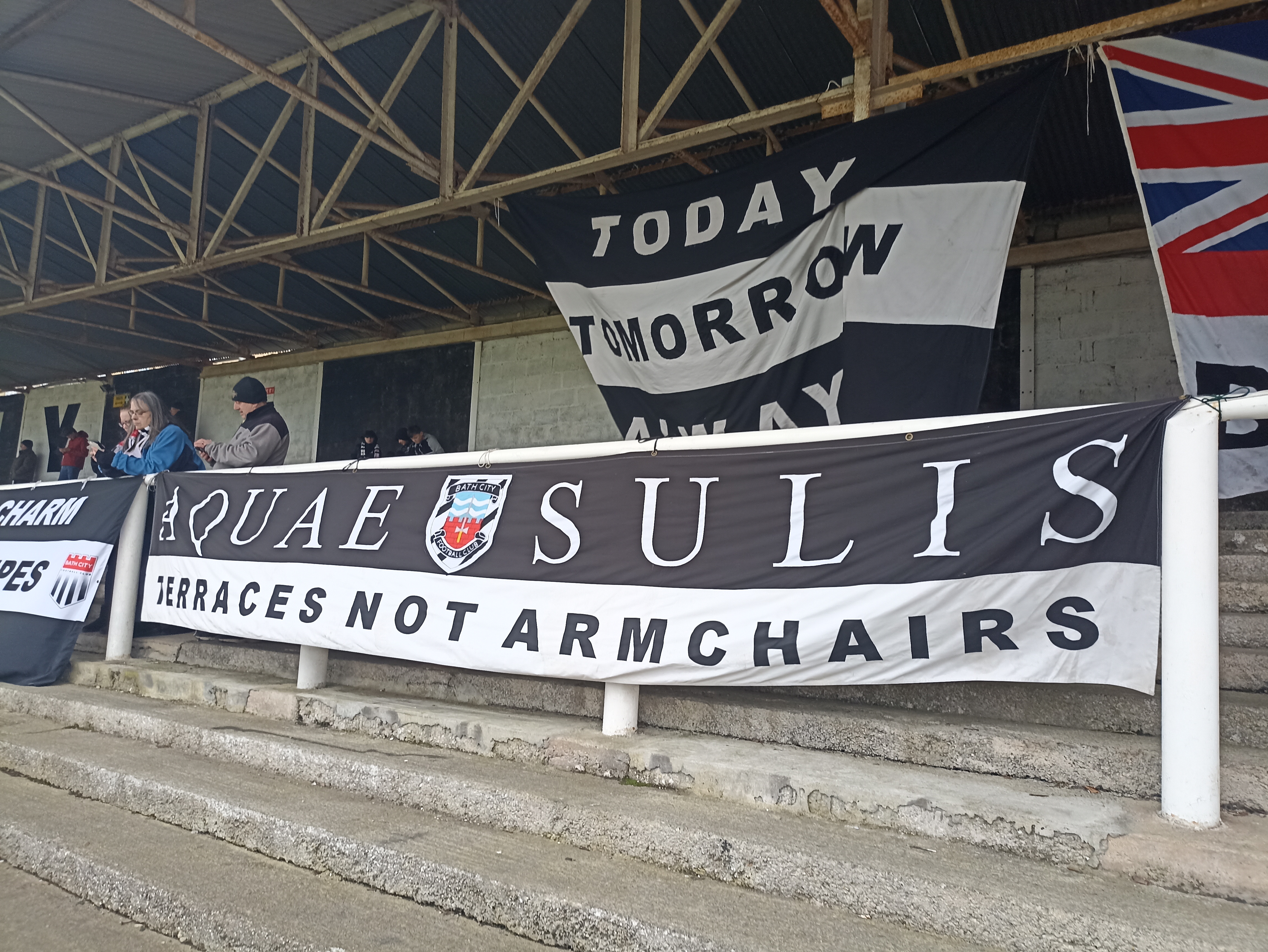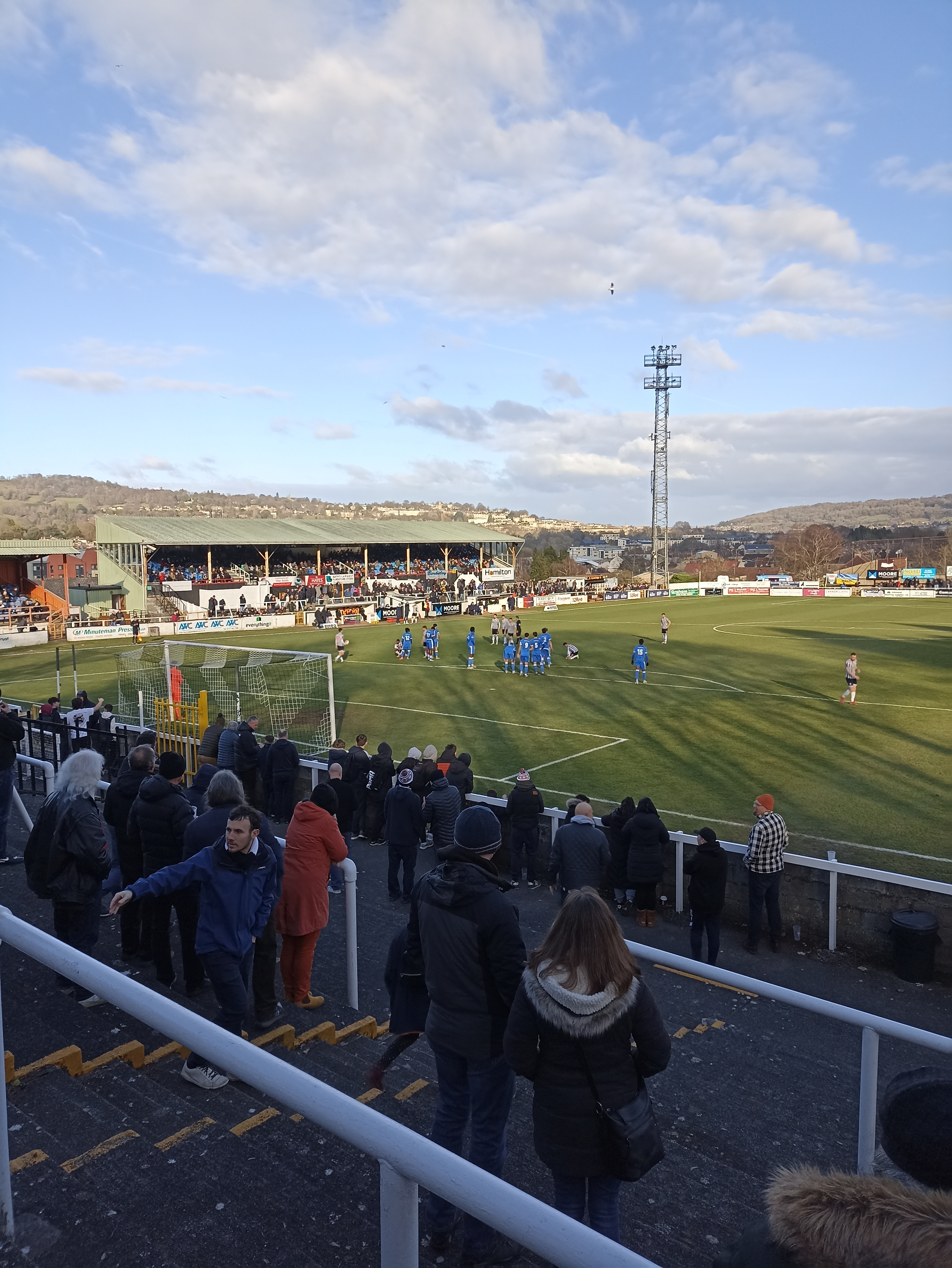More “out” than “in”: translating attachments into membership at a community-owned football club
by Oliver Holtaway
18 April 2023

It’s a warm evening in July, and doors of Bridgehead FC’s clubhouse are left open to allow in a breeze. Six collapsible grey plastic tables have been pushed together to form a one long table, around which sit the club’s shareholders, directors and supporters club officers, along with a representative from the Football Supporters Association (FSA) and an ethnographer. The mood in the room is pensive, and difficult to read: some look confused, some passive, some stare off into space.
Reading tentatively from a prepared speech, Dennis from the Bridgehead FC Supporters Club tries to convince the shareholders to transfer their shareholdings to a new “community benefit society” (CBS), thus making Bridgehead FC a community-owned club. His supporters’ group is spearheading this initiative with support from Adam of the FSA, who explains how many other clubs have thrived under this “one member, one vote” ownership model.
[A shareholder] interjects to raise a possible downside of open membership: “Could you have a situation where there are members who are more “out” than “in”, and they vote for something that is not for the benefit of the club?”.
[Another shareholder] chimes in: “If there are 500 loyal fans, and then 1000 people act in concert, can they vote to sell the business to a consortium? That’s what I worry about.”
Open and equal membership is a central feature of the community ownership model: anyone can join, and everyone gets the same vote. Here, however, the shareholder’s query makes a conceptual break within the future imagined membership between “loyal fans” who are “in” and can be trusted to make decisions with the benefit of the club in mind, and a loosely-defined group of people who are “out” and cannot be trusted in the same way.
Contests and negotiations in community ownership

This vignette surfaces the mediations, contests and negotiations that take place when a community group takes ownership of its local pub, music venue or football club. Community ownership is increasingly popular. Successive governments have championed it, and charities and funders have created a support infrastructure to help local groups take ownership and control of threatened local assets. To date, however, there has been relatively little research into the micro-political processes by which practitioners of community ownership piece together their collective plans, hopes and visions for the future of the asset they care about. My doctoral research is an ANT-inspired ethnography of such processes: sitting in on the meetings of the boards, committees and steering groups that are attempting, or have achieved, a community takeover. Specifically, my approach is inspired by actor-network-theory (ANT), a “relational and process-oriented sociology that treats agents, organisations, and devices as interactive effects” (Law, 1992, p.7), and offers a distinctive lens for understanding how power asymmetries are generated, reproduced, subverted and transformed through interactions between heterogeneous actors, including non-humans.
Watching such groups work has yielded two tentative insights. First, this work involves translations and localisations: pubgoers, football fans and local residents must be turned into members of democratic ownership organisations, and off-the-shelf structures must be imported, tweaked and tailored to suit local conditions. Second, these are socio-material and socio-technical processes, in which dreams, contests and negotiations are mediated by legal structures, technological tools, local authority boundaries, sloping football pitches and leaky canopies in pub gardens.
Sure enough, the issue of membership re-emerges when Dennis’s organising group meets over Zoom to debate the merits and affordances of different membership management tools:
Gareth: Isn’t the bigger issue having some kind of scope or control for who we allow in? I think it’s flawed - it should be much more restricted - that’s more important than getting the right app for it.
Dave: Sure, but we can’t have any controls on it unless we know where the applications are going. I haven’t got an answer - if we launched it tomorrow and had online channels, etc - how do we know what these peoples’ credentials are? We can cross-reference against season tickets, we have a significant number, so if we saw that first 100 members, and none of them were season ticket holders… But my personal view is that we are over-egging the fear of this happening. Has it happened to other clubs in the early days? Maybe later on…. There’s a risk to everyone. Are we going to vet every application?
Joe: There’s only so far you can police this. I’ve got extended family in Brazil, are we all going to run for the hills if we start getting addresses in Brazil [appearing in the members list]? You just have to say thank you, obrigado!
Gareth: You all seem very relaxed about it - I’m the only one worrying about it.
Translating stakeholders to members
In the first scene, the term “loyal fan” hints at an implied hierarchy based on people’s differing histories, practices and attachments to the asset, which would be flattened through translation to a standardised, albeit more inclusive, member relationship. As Dennis later remarks to me over a half-time cup of tea at a Bridgehead FC match, “People haven’t got their heads around the fact that members in South America and members here will have the same vote”.
Is this “flattening” is a matter for celebration or concern? At Bridgehead FC, even those who are actively pushing for community ownership have their worries, and explore technical means of including the “right” members and excluding the “wrong” members. The open membership mechanism may extend and diversify the communities attached to an asset, giving every local resident or far-flung well-wisher a chance to participate democratically on an equal footing. At the same time, throwing the doors open could radically reshape the future possibilities for an asset in ways that feel threatening or unfair those who are most deeply invested in it.
These moments illustrate a key task faced by the organisers of community ownership transitions: to design processes that will translate stakeholders into members, and grapple with the micro-political issues that arise from this. By studying these granular, sometimes mundane aspects of community takeovers, we can better understand how different site-specific manifestations of community ownership can reconfigure assets and their communities, and thus reshuffle power asymmetries and open up and close down different possibilities.
Notes:
Law (1992). ‘Notes on the Theory of the Actor Network: Ordering, Strategy and Heterogeneity‘, Centre for Science Studies, Lancaster University
Oliver Holtaway is a PhD Researcher at Goldsmiths, University of London
︎ Images by Oliver Holtaway
Images depict Bath City FC, a community-owned football club that the author supports. Bath City FC is not “Bridgehead FC” and is not used a case study in the project.

